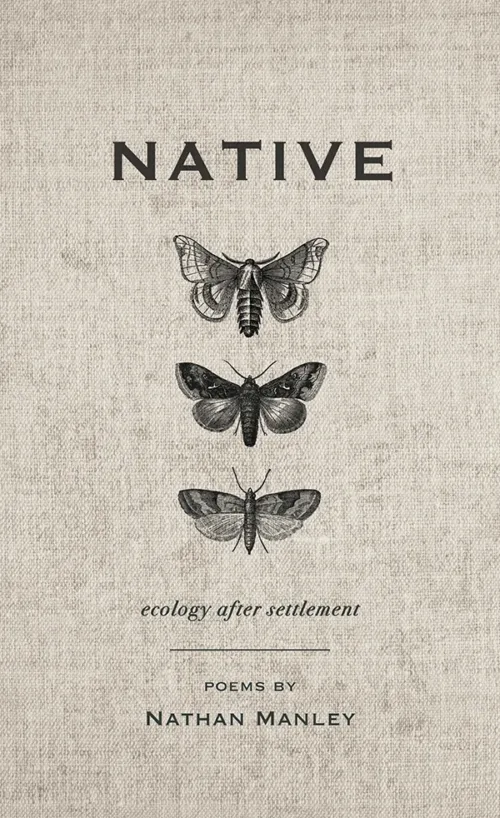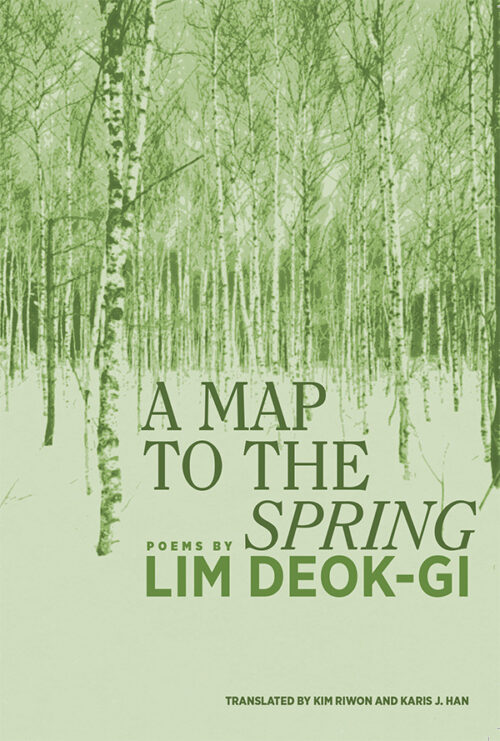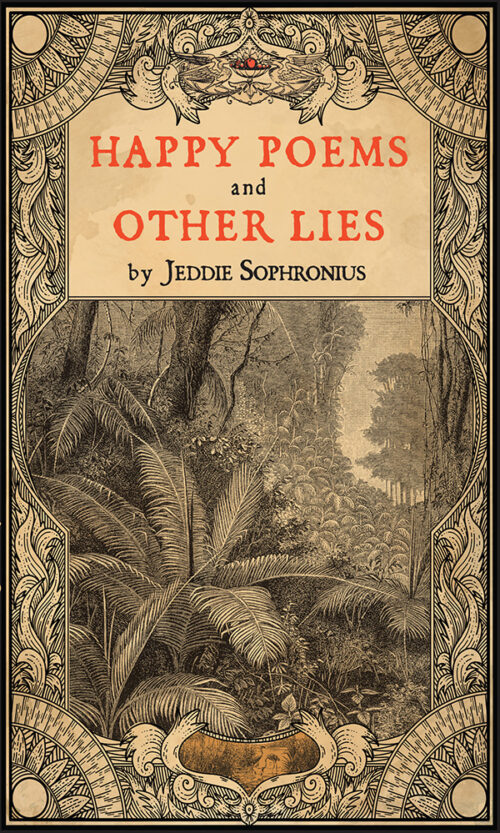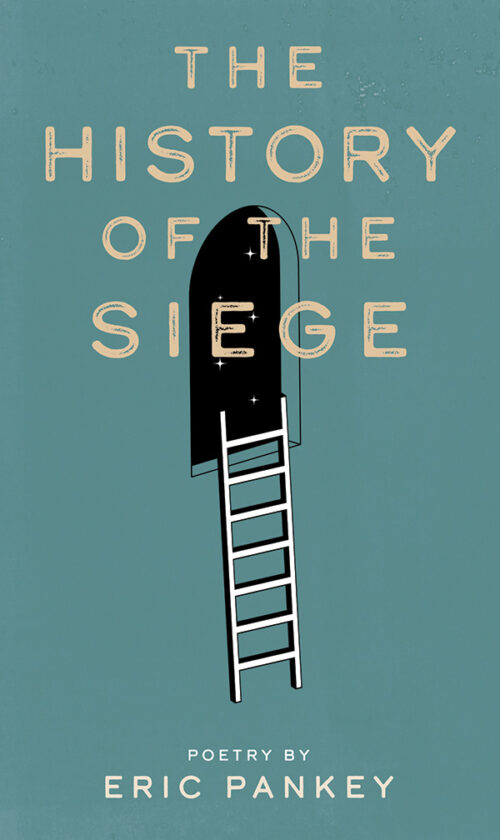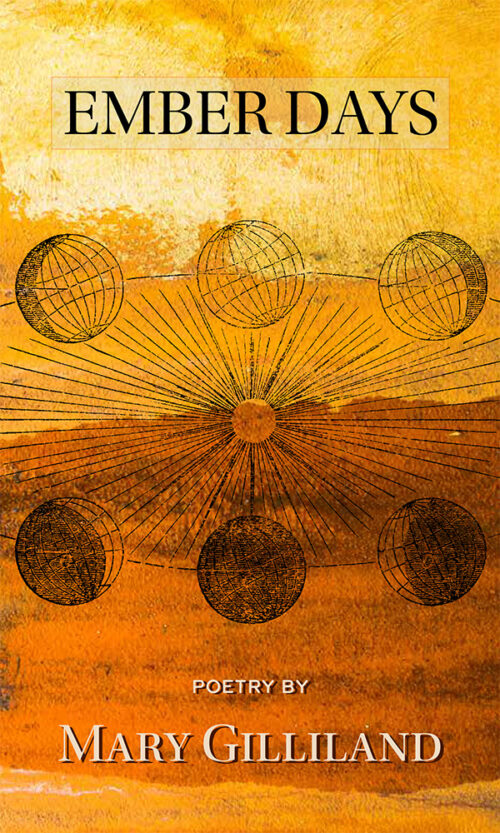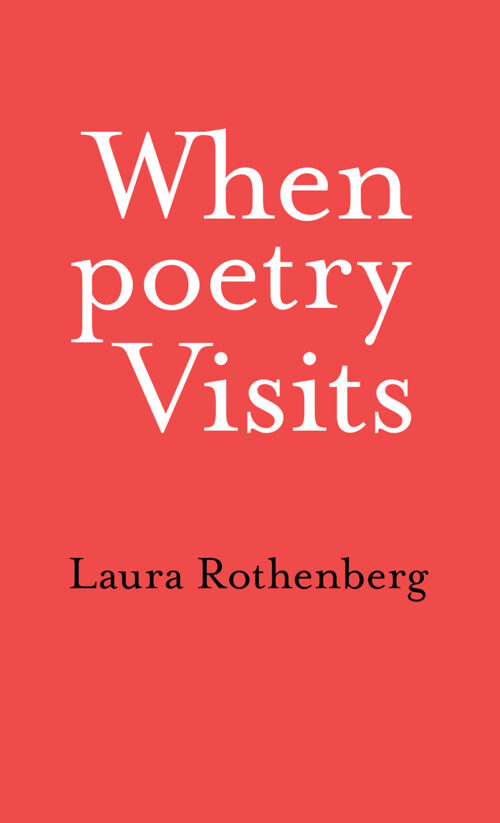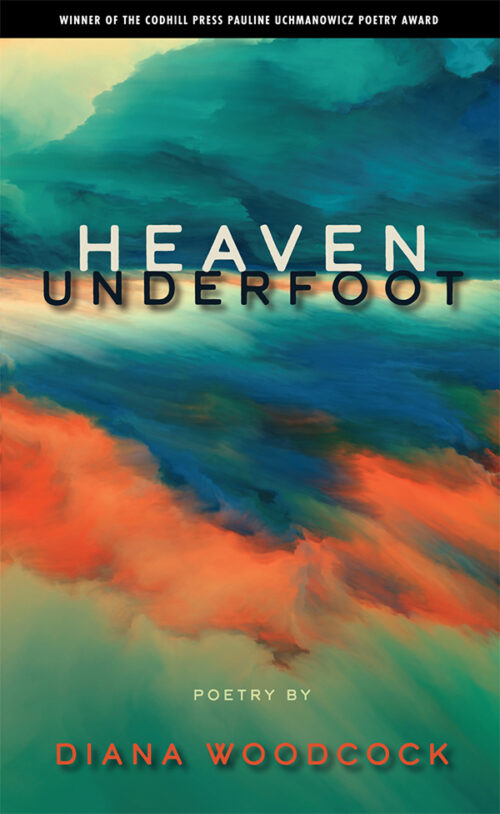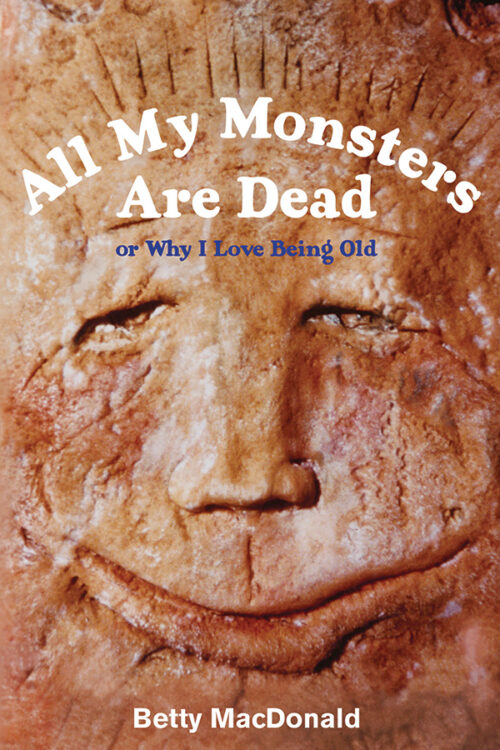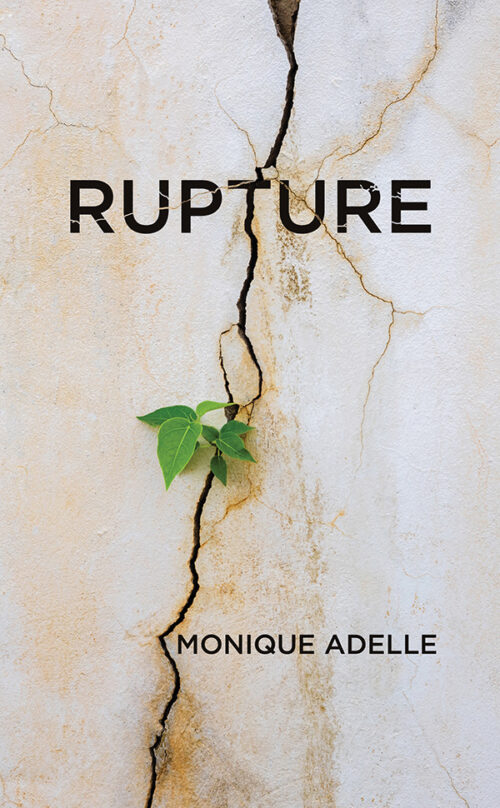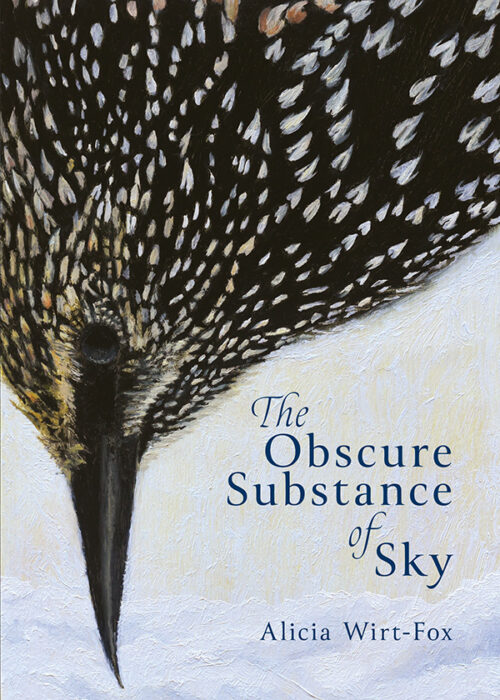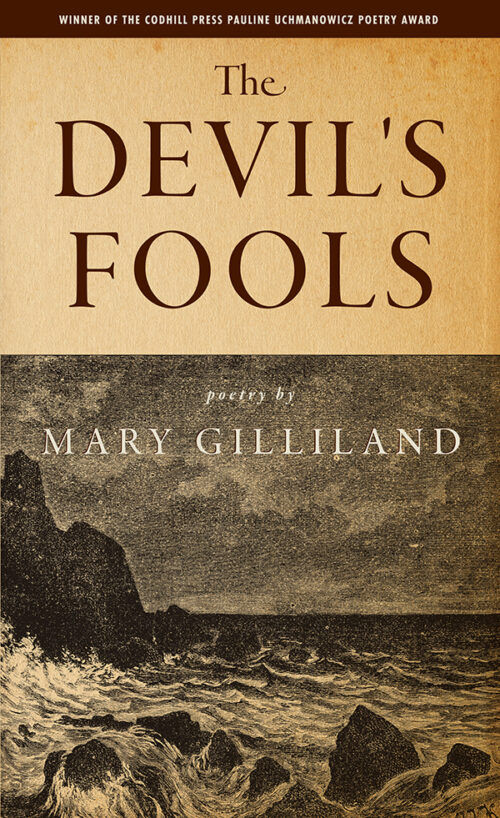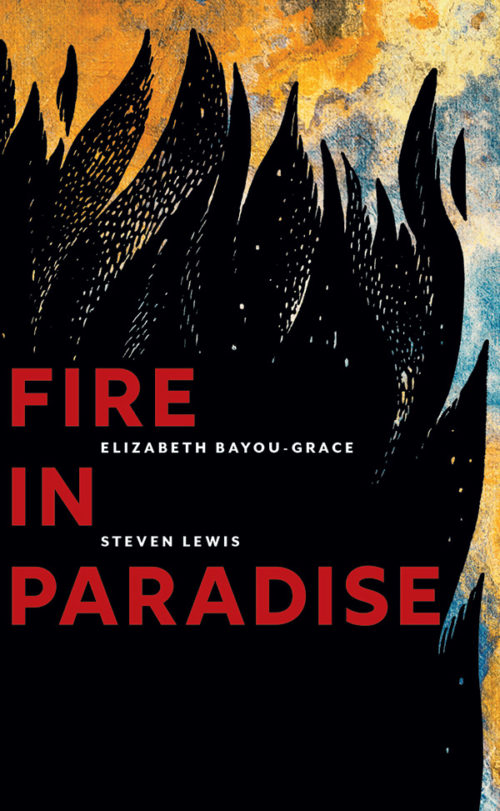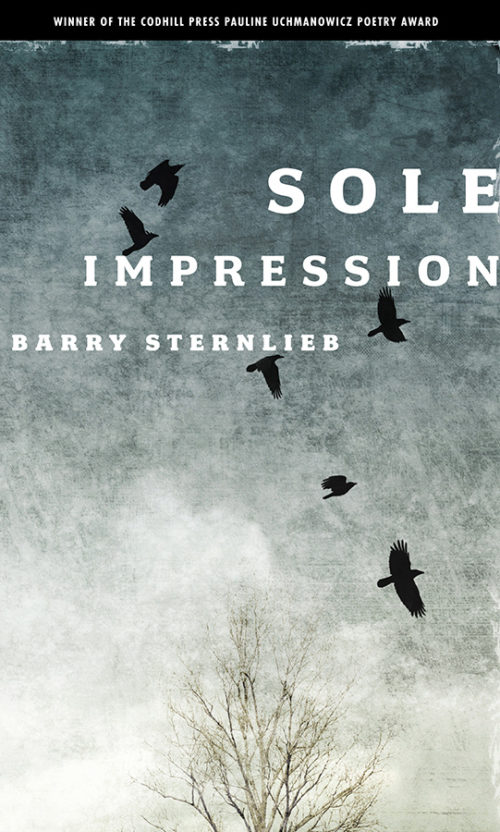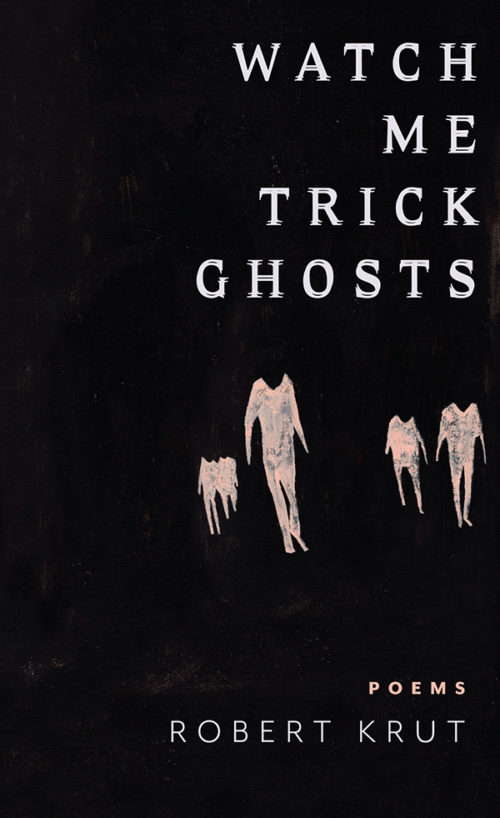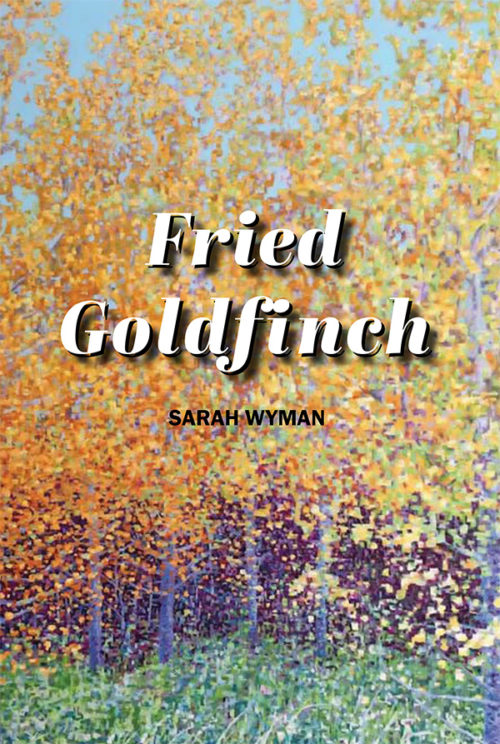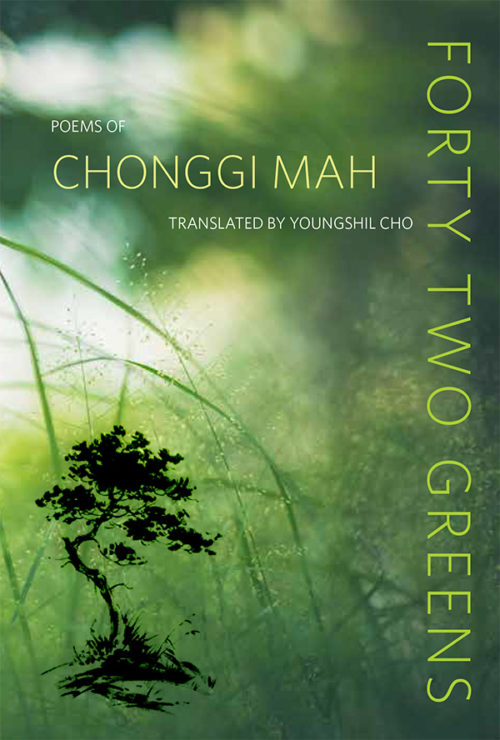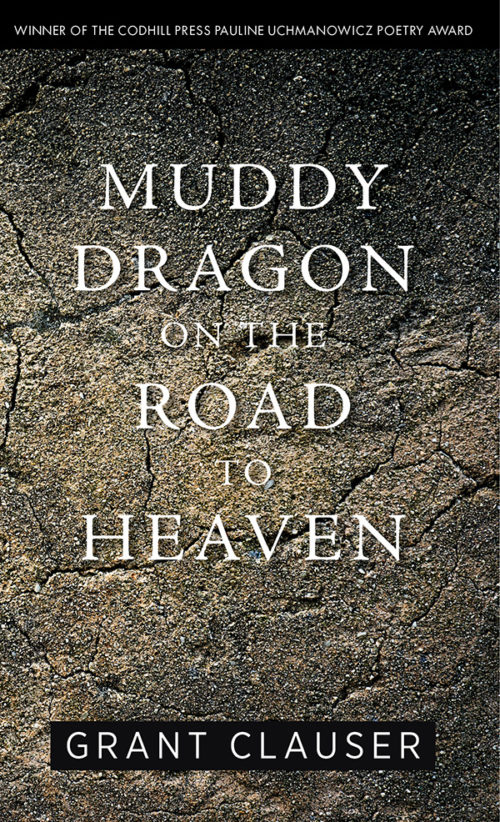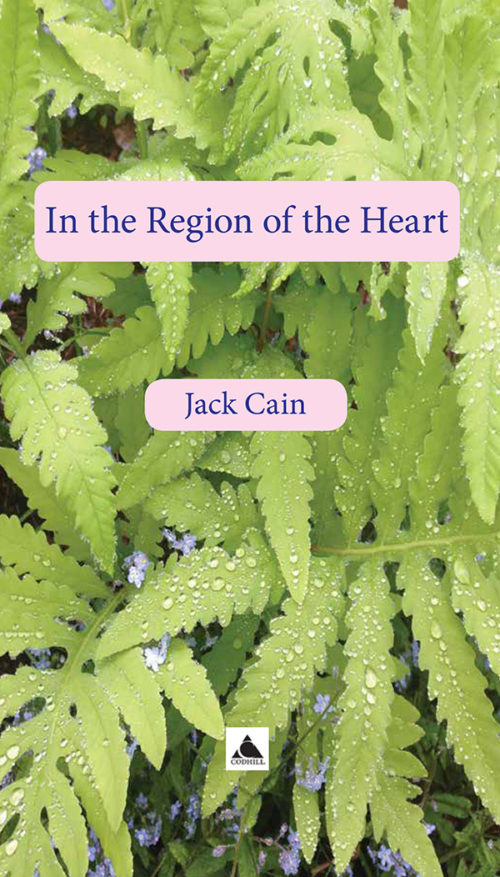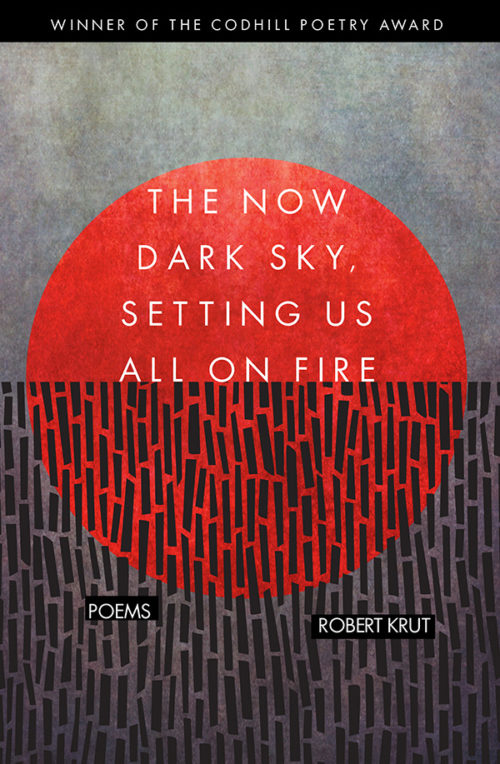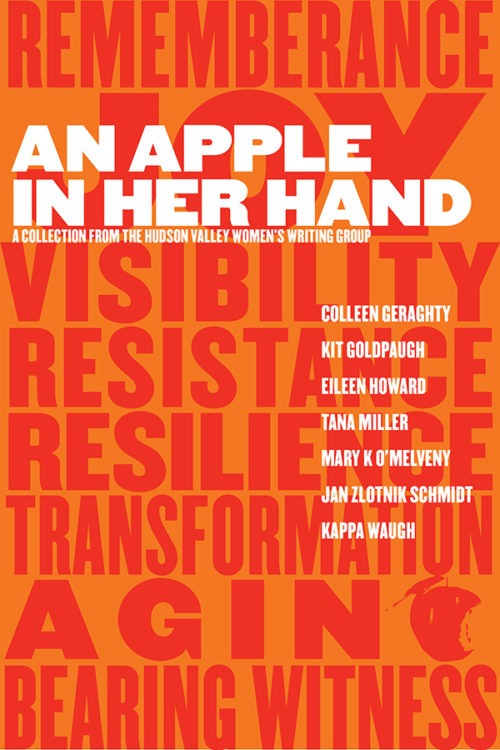“For sheer musical intensity, local precision and quirkiness of spirit, this book deserves to be mentioned in the same breath as Alice Oswald’s Dart or Lorine Niedecker’s Lake Superior. Paeans to place indeed! But instead of the waterborne drifting of those poets, Nathan Manley gives us his dusty Western plains, where the foothills of the Rockies begin their rise—there is something charmed about his inhabiting of these places through the full range of their creaturely lives, everything from algae to pronghorns to cutworms to owls. Here it all is, in this beautiful book, while we barely have it still, a loving witness to what we would lose.” —David RivardNathan Manley is a poet, translator, and contracts attorney from Windsor, Colorado. He is the author of two chapbooks, Numina Loci (Mighty Rogue Press, 2018) and Ecology of the Afterlife (Split Rock Press, 2021). Recent poems and Latin translations have appeared or are forthcoming in Tahoma Literary Review, Spillway, Image, Portland Review, The Classical Outlook and others. His work has been nominated for Best of the Net and a Pushcart Prize. When he’s not too consumed with government work or writing projects, he composes music as a multi-instrumentalist. You can find his writing and instrumental music at nathanmmanley.com Paperback Page count: 82 Trim size: 5.5 x 9 in. ISBN: 978-1-949933-28-4
-
With a peculiar interest in vermin and so-called invasive species, the poems in Nathan Manley’s Native explore Colorado ecology—organisms as grouped and understood in the taxonomies of memory, history, scientific practice, personal experience, and (to a frankly unanticipated extent) Christian cosmology. Each piece considers a different organism or assemblage of organisms. Ranging from the bunchgrass-stippled flats of the Eastern Plains to the hogbacks and streamlets of the Front Range to the lichened alpine parks of the Rockies, Native touches on the sheer panoply of plant, animal, and microbial life comprising the region’s biotic community. The collection draws on more than 200 years of scientific literature in its project of compiling a poetic ecology to meet the twenty-first century—an age in which mankind has irreparably fractured, shuffled, re-pieced, and transfigured the natural order to an extent that cannot but strike a sympathetic heart with both terror and awe, a reverence for the beauty of a wounded Nature and a vested hope in the holy contiguity of all things.
-
A Map to the Spring is a translation of collection of poems praising the vitality of life on Earth—including us humans—by Korean poet Lim Deok-Gi. A Map to the Spring invites readers on a poetic journey through the seasons, intertwining reflections on nature and humanity. Through the lens of the poet's experiences, the book explores themes of winter and fall, urging readers to pause and contemplate the beauty and significance of life in all its forms. Lim Deok-Gi's verses serve as a gentle reminder to pay attention to the world around us, lest we overlook the richness and depth of existence. With lyrical prose and profound insights, A Map to the Spring beckons readers to embrace the interconnectedness of all living things and find solace in the ever-renewing cycles of nature. Lim Deok-Gi is a poet and an essayist. She was born in Pohang, North Gyeongsang Province, in Korea. She graduated from Ewha Womans University's Department of Korean Literature and worked as a teacher in middle and high school. She made her debut in Essay Age in 2010, and Essay Literature in 2012 as an essayist. As a poet, she made her debut in Eji Poetry Literary Magazine with “Salt Fields in the Himalayan Valley” and four other poems, in 2014. Her poetry collections are Kondrappda and A Map to the Spring. Her essay collection is Dream of Sculpture Cloth. “A Slanted Tree” was selected by Sejong Sharing Book in 2015, “Different Colors of Water” received the Won Jong-rin Literature Award, Permeate. Currently she is a member of the Women Writers' Committee of the Korean Branch of International PEN Literature, and Director of the Korean Essay Literature Promotion Association, and Ewha Womans University Graduate Writers Association. She is a member of the Korean Writers Association and the Korean Women's Literature Association. About the Translators Kim Riwon graduated with a Masters Degree in Korean-English Translation from the Graduate School of Translation and Interpretation at Ewha Womans University in Seoul, Korea. Karis J. Han graduated with a B.S. in Psychology at the University of Utah. She graduated with a Masters Degree in Korean-English Translation from the Graduate School of Translation and Interpretation at Ewha Womans University in Seoul, Korea. Paperback Page count: 108 Trim size: 4.5 x 7 in. ISBN: 978-1-949933-27-7
-
Happy Poems & Other Lies is a poetry collection that details the experience of an exiled speaker who struggles to conform to the rigid religious beliefs imposed by their family. The speaker's various identities revolve around being a son, a wanderer, and a self-proclaimed prophet. The manuscript combines elements of biblical language, surrealism, and absurdism to explore the speaker’s longing for acceptance and their internal conflicts as they navigate their own spirituality. The manuscript is divided into three sections, each portraying the evolution of the speaker’s identity. The initial section delves into the speaker’s origins, highlighting their struggle to reconcile personal beliefs with familial expectations and traditions. The second section captures the speaker’s return home after an extended absence, where they confront their past and navigate complex family dynamics. In the final section, the speaker embarks on a transformative journey away from home, distancing themselves from their past and religious constraints. This separation leads to a profound revelation as they embrace their true self, finding solace in their own spirituality, embracing a liberating transformation. Jeddie Sophronius is a Chinese-Indonesian writer born in Jakarta, Indonesia. He is the author of Interrogation Records (Gaudy Boy, 2024), Love & Sambal (The Word Works, 2024), and the chapbook Blood·Letting (Quarterly West, 2023). He holds a BA from Western Michigan University and an MFA from the University of Virginia. The recipient of the 2022 Gaudy Boy Poetry Book Prize, their poetry has appeared in The Cincinnati Review, The Iowa Review, Prairie Schooner, and elsewhere. They divide their time between the United States and Indonesia. Read more of their work at nakedcentaur.com Paperback Page count: 72 Trim size: 4.5 x 7.5 in. ISBN: 978-1-949933-26-0
-
Written and gathered together in an era of pandemic, rising authoritarianism, war, and climate crisis, the prose poems in Eric Pankey’s The History of the Siege chronicle the eschatological age we live in, where everyone, as the Polish poet Zbigniew Herbert argues, “suffers from a loss of the sense of time.” Pankey, in his third collection of prose poems, continues to investigate the formal and rhetorical possibilities of this already subversive genre. In a 1987 interview, Zbigniew Herbert said, “It is vanity to think that one can influence the course of history by writing poetry. It is not the barometer that changes the weather.” While these poems—sometimes solemn, sometimes hermetic, sometimes funny—do not attempt to influence history, they do hope to capture what it is like to live within history, and it looks like, as the old song says, we’re in for nasty weather. Eric Pankey is the author of sixteen previous collections of poetry and a collection of essays. His work has been supported by fellowships from the Ingram Merrill Foundation, The National Endowment for the Arts, and the John Simon Guggenheim Memorial Foundation. He is Professor of English and the Heritage Chair in Writing at George Mason University. Paperback Page count: 130 Trim size: 4.5 x 7.5 in. ISBN: 978-1-949933-24-6
-
The rivetting poems of Ember Days begin with ritual and end with prayer as they tunnel through Wednesday’s jammed boulevards, Friday’s cash worthless, Saturday’s prodigal feet. Plant disease incurable as colonialism inhabits nature’s solace; funds for libraries disappear, abandoned houses compel secrets. Woolf’s pen runs dry, Tesla holes up, Lincoln emerges in yet another bardo. Soldiers in Baghdad, models transformed to artists, descendants of forced immigrants, survivors of hurricanes, witnesses for peace—these and other intercessory voices step up to our world’s disasters, level with its possibilities, interrogate faith, justice, militarism, madness, and the perception and affection of intimate relationships. Mary Gilliland is the author of two award-winning poetry collections: The Ruined Walled Castle Garden (2020) and The Devil’s Fools (2022). Her poems are widely published in print and online literary journals and most recently anthologized in the Aesthetica Creative Writing Award 2023 annual; Rumors Secrets & Lies: Poems about Pregnancy, Abortion, & Choice; Wild Gods: The Ecstatic in Contemporary Poetry and Prose; and Nuclear Impact: Broken Atoms In Our Hands. She is a past recipient of the Stanley Kunitz Fellowship from the Fine Arts Work Center in Provincetown and a Council on the Arts Faculty Grant from Cornell University, where she created and taught seminars such as ‘Ecosystems & Ego Systems’ and ‘America Dreaming.’ Paperback Page count: 80 Trim size: 4.5 x 7.5 in. ISBN: 978-1-949933-19-2
-
The poems in this collection are a meditation on themes such as illness, friendship, family, death, lost innocence, survivor’s guilt, and transcendence by a talented young poet who experienced and endured more in her short life than most people do by old age. Laura Rothenberg was born with cystic fibrosis which is a genetic disease. The poetry is connected with many different special moments, and realizations in her life. Even though she had this disease, and died at the age of twenty-two, she gave as much as she could to life, helping friends, helping others who were ill, and learning different sports. This poetry reveals all of these different sides of her, and much more. Paperback Page count: 54 Trim size: 5.5 x 9 in. ISBN: 978-1-949933-22-2
-
The poems in Heaven Underfoot qualify as ecopoetry as they exemplify the four features of environmentally conscious texts, which set them apart from nature writing (as outlined by American scholar Lawrence Buell in The Environmental Imagination): they make the non-human environment central rather than marginal; they feature human interest as only one valid focus; they hold humans accountable to the environment; and they portray nature as a process rather than a fixed framework.
Diana Woodcock holds a Ph.D in Creative Writing from Lancaster University, where she researched poetry’s role in the search for an environmental ethic. In 1974, she earned a B.S. degree in Psychology, and in 2004 an M.F.A. degree in Creative Writing. She has worked as a counselor with delinquent youth, an editor of a young women’s magazine, and a teacher of English as a second language. For nearly eight years, she lived in Tibet, Macau, and on the Thai-Cambodian border teaching and working with refugees. Since 2004, she has been teaching creative writing, environmental literature, and composition at VCUarts Qatar. She is the author of seven chapbooks and five poetry collections, most recently Holy Sparks (a finalist for the 2020 Paraclete Press Poetry Award) and Facing Aridity (a finalist for the 2020 Prism Prize for Climate Literature). She is the recipient of the 2022 Codhill Press Pauline Uchmanowicz Poetry Award, the 2011 Vernice Quebodeaux Pathways Poetry Prize for Women (for her debut collection, Swaying on the Elephant’s Shoulders), a three-time Pushcart Prize nominee, and a Best of the Net nominee. Her poems have appeared in Best New Poets 2008, Women’s Review of Books, Nimrod, Crab Orchard Review, Southern Humanities Review, Spiritus, Comstock Review, and other journals and anthologies. Her grand prize-winning poem, “Music as Scripture,” was performed onstage in Lincoln Park, San Francisco by Natica Angilly’s Poetic Dance Theater Company at Artists Embassy International’s 21st Dancing Poetry Festival. Paperback Page count: 86 Trim size: 5.5 x 9 in. ISBN: 978-1-949933-25-3 -
Betty writes with wisdom and humor about aging, as well as many of life’s stages. In a career encompassing sculpture, painting, freelance writing, and performing, the author turned to writing from her heart in her late seventies. At eighty-nine, she offers her first published book. Betty’s work has appeared in the anthologies Get Out of My Crotch, 80 Things to Do When You Turn 80, Open House, Better with Age, and Lightwood, an online magazine. She has performed her work for WritersRead, TMI Project, and Woodstock Bookfest. Betty hosts Words Carry Us, a monthly livestream of readings and interviews from Green Kill, in Kingston, NY. Paperback ISBN: 978-1-949933-21-5
-
Through a combination of personal narrative and historical research, Rupture weaves together the history of enslaved women in the Americas and themes of life, love, and loss. A nursery rhyme motif in the book juxtaposes the innocence of childhood and the insidious transgenerational trauma of slavery. The poems trace the author’s own journey through pregnancy and into motherhood as it poses its own questions to the history of African-American motherhood, inevitably imprinted by the legacy of slavery in the Americas. Ultimately, the book heralds the creativity and resilience that characterizes black life. Monique is an associate professor and chair of the English, Writing, and Communication department at Emmanuel College where she teaches courses in literature and poetry writing. Her first collection—Anonymous (Jacar Press, 2018)--won the New Voices Award and her second collection, Rupture, was a finalist the Perugia Press Prize and Four Way Books Levis Prize in Poetry. Her book Between the Lines: Literary Transnationalism and African American Poetics (Oxford UP, 2011) is the first to juxtapose Cuba, Brazil and the United States in a study of nineteenth-century women’s poetry, and the first to include the Lusophone literary tradition in a comparative study of African descendants in Latin America, the U.S., and the Caribbean. Paperback Page count: 64 Trim size: 5.5 x 9 in. ISBN: 978-1-949933-18-5
-
The poetic writing and images of Alicia Wirt-Fox’s The Obscure Substance of Sky are divided into three parts. Each attempts to evoke three distinct realms. The Obscure pertains to the hidden, unseen, or arduous aspects of living in ourselves in the world as humans. Substance describes our material existence. Discoveries in nature, in the body, or experiences on and of Earth. Of Sky alludes to immaterial realms, abstractions and the world above. All the sections weave ideas and experiences and the character of birds dance between each distinct space. Alicia Fox is an artist, designer, poet, and teacher. Alicia Wirt-Fox was born in Chicago, Illinois. She received a BFA from Parsons School of Design in 1987 and an MFA from Yale University School of Art in 1997. Her first collection of poetry and paintings entitled Missives was published by Codhill Press in 2009. She wrote a series of poems for the book Blind Date a collaboration with the photographer Alan Barnett, published in 2012. She is a recipient of the 19th Annual Richard Kelly Grant for her experimental work utilizing reflective light and color within the context of painting. She teaches at the School of Visual Arts in New York City and currently lives and works in Greenpoint, Brooklyn. Paperback Page count: 76 Trim size: 5 x 7 in. ISBN: 978-1-949933-17-8
-
Subverting received traditions, embellishing mythic figures, the lyrics of The Devil’s Fools speak to and for those wanting heaven: modern pilgrims, medieval masons; seafarer, axe murderer, alcoholic; daughter, spouse, sibling, mother; a woman on pause, a monarch of the underworld, Eve stepping out past Eden. One country bombs another, there’s mass animal slaughter during epidemic, never-ending yard work, love letters from the dead. Humans sorrow and glory, mourn and thrive, treasure the will to live—with burdock and mushroom, apple and willow, cicada, cuckoo, brontosaurus, toad. The poems represent wild and delicious creaturely delusion, deception, vigor and joy. Mary Gilliland is the author of two award-winning poetry collections: The Ruined Walled Castle Garden (2020) and The Devil’s Fools (2022). Her poems are widely published in print and online literary journals and most recently anthologized in Rumors Secrets & Lies: Poems about Pregnancy, Abortion, & Choice; Wild Gods: The Ecstatic in Contemporary Poetry and Prose; and Nuclear Impact: Broken Atoms In Our Hands. She is a past recipient of the Stanley Kunitz Fellowship from the Fine Arts Work Center in Provincetown and a Council on the Arts Faculty Grant from Cornell University, where she created and taught seminars such as ‘Ecosystems & Ego Systems’ and ‘America Dreaming.’ Paperback Page count: 82 Trim size: 5.5 x 9 in. ISBN: 978-1-949933-16-1
-
A collection of poems written by father and daughter during the Pandemic Year 2020
“My father and I started talking about making a split collection of poetry together shortly before the pandemic began. And then he was hospitalized with Covid-19, and we all watched the world change. Together. Separately. It was then that I began to understand how important it was to share our voices in the same collection, to be read together. To not only write with him in the room, but to explicitly invite him in. To make something beautiful out of our conversation. To suffer together. To learn together. To dream of a better world.”
—Elizabeth Bayou-Grace (from the Introduction)
Paperback Page count: 80 Trim size: 5.5 x 9 in. ISBN: 978-1-949933-15-4 -
Sole Impression is a collection of Poetry that covers a broad range of subjects from the personal to the universal. Barry Sternlieb is the author of Winter Crows (2008 winner of the Codhill Press Chapbook Award), and three other chapbooks. His work appears in Poetry, The Yale Review, Southern Review, Virginia Quarterly Review, Sewanee Review, Gettysburg Review, New England Review, Prairie Schooner, Beloit Poetry Journal, Commonweal, and others. He is the recipient of a 2004 Massachusetts Cultural Council Fellowship in Poetry, and also edits Mad River Press, specializing in the very slow creation of handcrafted, limited edition letterpress poetry broadsides and chapbooks since 1986. The Mad River archive is housed in The Chapin Library at Williams College. Paperback Page count: 88 Trim size: 5.5 x 9 in. ISBN: 978-1-949933-12-3
-
In Watch Me Trick Ghosts, Robert Krut reveals a city weaving between a surreal consciousness and concrete imagination, where speakers are fully aware that “the scars of the world are turning neon” (“Accidental Light”). Among them, spirits hide and appear in tree lines, behind bookcases, even “etching a name into a street sign pole with a knife” (“You Are the Street, You Are the Sleep”). These poems skillfully veer between lyrical moments of intimacy and urgent messages seemingly sent from the negative space surrounding a dream. It may be the case that “fear is a blade held in a lung” (“The Anxious Lever of Lowering Sky”), but in the quietest hours of night, strangers can connect through striking images that cast a spell. Robert Krut’s poetry collection Watch Me Trick Ghosts offers an immersion into the sublime, enveloping the reader in a shroud of welcome terror. Fusing narratives of ordinary life with flashes of otherworldly awe, Krut’s speaker serves as guide and protector while we venture down darkened streets, through empty buildings, and even into a forest grown out of grief. The lines of these poems haunt with remarkable clarity. “A Coffin is a Battery” states that, “Fine hairs of stray electricity twitch in wind,” and “When you come looking, I am the wires.” Whether through surreal imagery, or storylines lifted from our strangest dreams, Watch Me Trick Ghosts has a chill to rival the most ravishing Gothic novel, and the simmer of film noir. --Mary Biddinger, author of Department of Elegy Paperback Page count: 66 Trim size: 5.5 x 9 in. ISBN: 978-1-949933-13-0
-
A volume of lyric poetry including ekphrastic works, animal poems, life studies, and found objects. Excerpt from “Sardine:” A rough-sketched line, a tin’s sharp edge delineates the domain of a lonely sardine who misses her erstwhile mates. As oil soothes the rounded corners, she awaits the cracker or cat’s crunch. Sarah Wyman teaches comparative literature at SUNY New Paltz. Her poems have appeared in many publications including A Slant of Light: Contemporary Women Writers of the Hudson Valley, Eds. Laurence Carr and Jan Zlotnik Schmidt (Codhill, 2013). Finishing Line Press published her book Sighted Stones in 2018. Paperback Page count: 94 Trim size: 6.25 x 9.25 in.
-
Translated by Younshil Cho The poems in this book, by the way they speak to all parts of our minds, invite us to come alive and experience each movement, each emotion and action, and some statements therein, intuitively and aesthetically. This is about a Korean man’s everyday life in the milieu of contemporary America; his struggle to find meaning in his immigrant life, in his vocation as a medical doctor, and to grow as a poet, a high calling for him. Weaving through personal narratives with the backdrop of historic events both domestic and foreign, he reaches a moralist’s viewpoint, as he searches for a right way to live. Equally excellent in lyric and narrative form, these poems give an indication he has found what he’s been after—good human relationships and artistic achievements, two founts giving ample significance to life. Chonggi Mah, a beloved poet of Korea and a retired medical doctor, has written over ten collections of poems and prose. Eyes of Dew was translated into English and published by White Pine Press in 2006. He has garnered numerous literary awards, and is acknowledged as one of major modern Korean poets. Youngshil Cho has won several grants for her translation of modern Korean poetry books and children’s books. Her publications include One Day, Then Another by Kim Kwang-Kyu (White Pine Press, 2013), A Warm Family by Codhill Press (2014), A Lion at Three in the Morning by Nam Jin-Woo (Homa & Sekey Books, 2017), Whisper of Splendor by Chong Hoyn-Jong (Homa & Sekey Books, 2018), Paper by Shin Dal-Ja (Codhill Press, 2018). Paperback Page count: 106 Trim size: 4.75 x 7 in.
-
The poems in this collection explore social and ecological struggles, personal and public nostalgia, family and solitude and seek to balance it all with hope. Grant Clauser is the author of four previous collections and has won the Cider Press Book Award and the Dogfish Head Poetry Prize. He lives in Pennsylvania where he works as an editor and writer and also teaches poetry at Rosemont College. These finely crafted, deeply evocative poems written with a tenderest heart, questioning mind, and an acutely observant eye, invite us to join the speaker on a trek across history, across intimate landscapes of relationships, human and animal courage, love and grief, global brokenness, and unexpected grace. - Doris Ferleger, author of Leavened and As the Moon has Breath Whatever the topic of his luminous poems--family, nature, childhood or fly fishing--to name a few, Grant Clauser knows that are all related. It is this understanding and wonder that undergirds these poems. Whether the characters in this book "smash atoms/ into each other/ trying to find god" or tie flies because "water is music/ I want to stand in," these poems reach for the place where the known world meets the realm we sense but cannot know. Grant Clauser is a poet who knows the importance of vision, both in the sense of observing what is around us and in being attuned to the worlds to come. "Trust me, this is the world we deserve," Clauser says. We will be more deserving of this world if we heed these wise and luminous poems. - Al Maginnes, author of The Next Place and Music From Small Towns
-
Most of these “fragments” were written by Jack Cain in group poetry sessions he was facilitating. The sessions were designed to be an exploration of the distinction between material arising from the subconscious mind as opposed to material arising from our ordinary consciousness. This direction came from G.I. Gurdjieff’s startling and impertinent statement that our subconscious is our “real” consciousness and our ordinary waking state of consciousness is “fictitious.” The group writing session would begin in quiet, participants would watch what arose and then write from that. Once everyone was done, the results would be read and there would be an exchange on what had been observed. These exchanges helped those present understand that we are all much more deeply connected than we realize.
2019 | 96 pages
-
Codhill Poetry Award Winner 2018
In The Now Dark Sky, Setting Us All on Fire, Robert Krut unveils surrealistic imagery and apocalyptic moments that encroach on his cityscapes. Entering his urban vision of off-kilter fingerprint police, helix fireworks, and lockboxes replete with “unsewn / buttons from the shirts of dead men” (“The Vault”), we are invited to witness how “daylight peels silence / off the sides of buildings” to reveal vampire teeth and arrows (“Phantasmagoria at Six AM”), how “every single body on the street / turns to paper” (“At This Very Moment”). Krut dismantles the world around us and in turn remakes it into something dark yet alive, a place seething with desire, where “A thousand leaves are worth one wish” (“This All Starts With You, and This All Ends With You”)From the very first poem in this quiet and intimate collection, Robert Krut inventively crafts image after shape-shifting image, each suggesting an alternate universe designed to help us better understand our real one. From a preacher in a lentil rainstorm to a doorman wearing a hat full of beetles, we meet people (and see places) filled not only with what is real but with what is possible. Between these magical details runs a clear and steady narrative: a speaker who dons the “too-small sweater of summer.” Who knows that “danger isn’t a bomb, danger is a drip.” And who survives “this pension of suffering.” The graceful poems in The Now Dark Sky, Setting Us All on Fire beautifully balance being both agent and acted upon. Krut is a poet of vivid imagery and distinctive voice.—Patricia Colleen Murphy, Hemming Flame
Robert Krut’s newest collection, The Now Dark Sky, Setting Us All on Fire, paints a landscape of imagination where the Lord of Time might be bargained with as we are left “waiting to be swallowed whole.” The seductive tactility of Krut’s language reminds us of our bodies, our bones and teeth, our veins and fingerprints even as we move among dragons and giant arachnids. A provocative pendulum swinging from fantasy to physicality and back again, these poems acknowledge our longing for escape but leave us with the inescapable conclusion that we are tethered now and forever to ourselves and to this blood-drenched world.—KMA Sullivan, Inclined to Riot
A poem inside a poem is a guest, and Robert Krut’s new compilation The Now Dark Sky, Setting Us All on Fire is worth putting the kettle on to serve. I am in awe at his ability with composing words, where the music from deep imagination comes easily to him. I’ve dined with these poems, went for long walks with “Now, Breathe Fire” and “Dear Demon” inside my coat pocket. I wrote his poem “Welcome” on a lotus leaf and posted it on my front door because it reminded that it is good to welcome the essentiality of darkness from time to time. Let these poems be lanterns to the door you are about to open. This collection is a treasure and good reason why we must keep on breathing.—Sam Roxas-Chua, Saying Your Name Three Times Underwater
2019 | 80 pages
-
The authors of this collection are seven older women from diverse backgrounds who are members of a longstanding Hudson Valley writing group composed of academics, a social worker, a psychiatric nurse, a teacher and a lawyer. Some are retired, some are still working, some are musicians. All are volunteers, activists and artists. The sections of the book— Remembrance, Joy, Visibility, Resistance, Resilience, Transformation, Aging, and Bearing Witness—grew from the authors’ individual passions and from their collective perspective of being women-of-a-certain-age in a culture that tends to render older women invisible, irrelevant. This collection is filled with honest, insistent poetry and prose that demands to be heard by readers of all ages, genders and perspectives.


